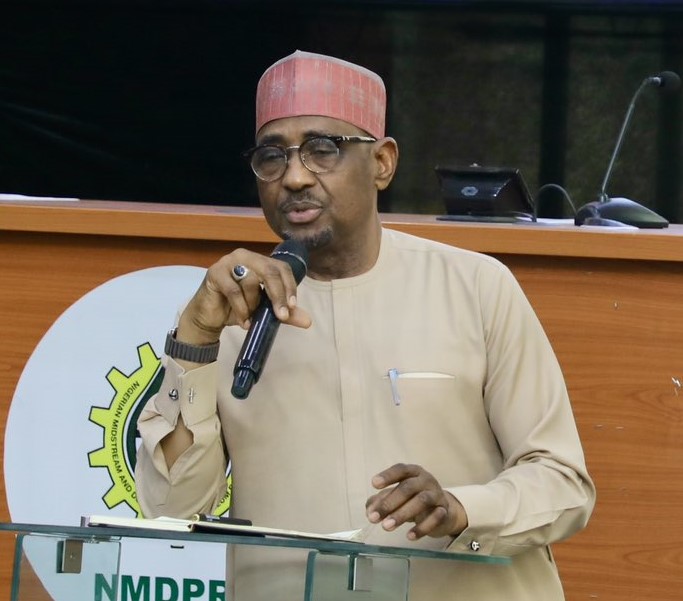Fuel retailers oppose NMDPRA’s proposed decommissioning rules
The Nigerian Midstream and Downstream Petroleum Regulatory Authority (NMDPRA) has introduced proposed regulations aimed at ensuring the safe abandonment and decommissioning of filling stations, a move that has stirred strong opposition from stakeholders in Nigeria’s downstream petroleum sector.
The draft regulation is part of the Proposed Midstream and Downstream Petroleum Safety and Environmental Regulations 2025 and is currently under public review at a Stakeholders’ Consultation Forum hosted at the agency’s headquarters in Abuja. A key clause mandates formal procedures for decommissioning retail fuel outlets, sparking debate among stakeholders who argue that the scope of the regulation should be limited to midstream operations.
Stakeholder Pushback and Agency Justification
Speaking at the forum, NMDPRA Secretary and Legal Adviser, Joseph Tolurushe, acknowledged the resistance from stakeholders. Many have requested that the new rules not apply to downstream operations, particularly filling stations. In response, Tolurushe emphasized the environmental importance of the regulation, particularly its role in preventing groundwater contamination.
He stated, “We are insisting there should be a proper way of abandoning filling stations in a manner that will not contaminate underground water.”
Tolurushe explained that the new regulation consolidates three existing regulatory frameworks from 2023 — safety, environmental, and abandonment/decommissioning regulations — into a single, unified regulation: the Mainstream and Downstream Safety and Environmental Regulations.
He said, “The reason why we decided to consolidate is mainly because we want to have one single regulation. So that it will be easy to refer to, and it will also be easy to do business. It is also an opportunity for us to amend some parts of those regulations we made in 2023, based on feedback we’ve received from stakeholders.”
He added that countries such as Norway serve as examples of effective regulatory simplification, having only one or two regulations guiding their upstream petroleum operations. Nigeria, he said, is also “moving into an era of self-regulation,” where the industry would largely govern itself with oversight from the authority.
Concerns Over Downstream Applicability
Addressing growing concerns, Tolurushe clarified that the guideline is simply a procedural document meant to support regulatory compliance, stating, “It is just a guide. It is also just to state the procedure for achieving what the regulations have said. So it’s not going to be too cumbersome or contain unresolvable errors.”
He acknowledged dissenting opinions on applying the decommissioning clauses to downstream operators. “Some of them feel that in the areas of the consolidated and abandonment regulations, we should limit it to midstream facilities. They’re saying the regulation should not apply to abandoned filling stations. But we believe there must be a way to properly abandon such stations to prevent contamination of groundwater,” he added.
Consolidation and Legal Alignment
In his welcome address, Ahmed Farouk, the Authority Chief Executive of NMDPRA, reiterated that the 2025 regulations are part of a larger effort to consolidate the Authority’s regulatory framework. Represented by Ogbugo Ukoha, Executive Director of Distribution System, Storage and Retailing Infrastructure, Farouk stated that the goal of the consolidation was to simplify compliance and eliminate duplication across multiple regulatory documents.
He said, “The consolidation process has enabled the Authority to reduce the complexities of navigating and implementing the Authority’s numerous Regulations, streamline all activities concerning health, safety, and environmental operations, including decommissioning and abandonment in the midstream and downstream petroleum industry, eliminate inconsistencies and repetitions across multiple regulations, and engender further compliance with the PIA and Regulations made thereto.”
He also cited Section 33 of the Petroleum Industry Act (PIA), which empowers the Authority to create regulations governing all midstream and downstream petroleum operations in Nigeria.
The consolidated regulations will also complement other recent regulatory instruments, including the Midstream and Downstream Petroleum Fees Regulations 2024, which outline prescribed fees for such activities.
Next Steps: Legal Finalization and Gazetting
The forum concluded with a resolution to expand stakeholder engagement. NMDPRA said it will review all feedback gathered from the session, obtain management approval, collaborate with the Ministry of Justice for final legal drafting, and eventually forward the regulation to the government press for gazetting. This final phase is expected to span approximately one month.














Post Comment